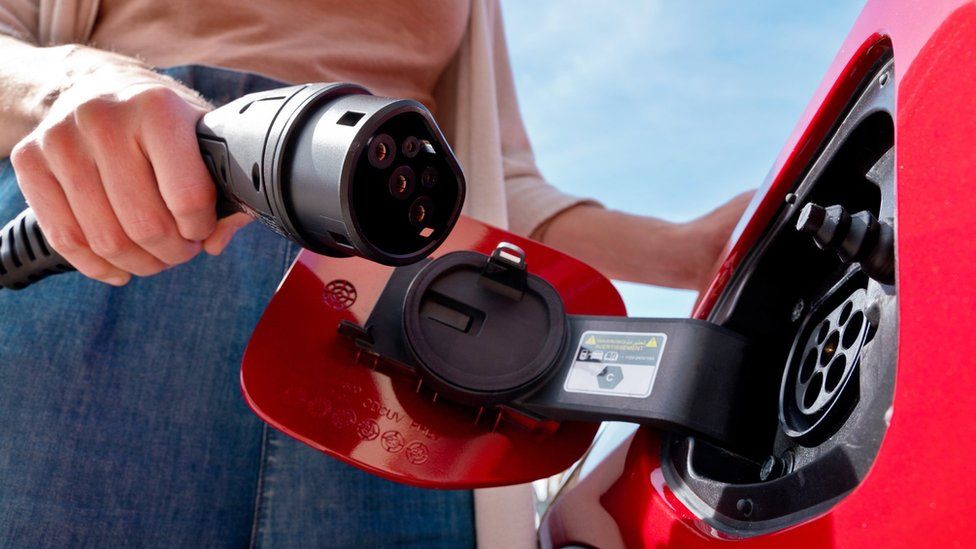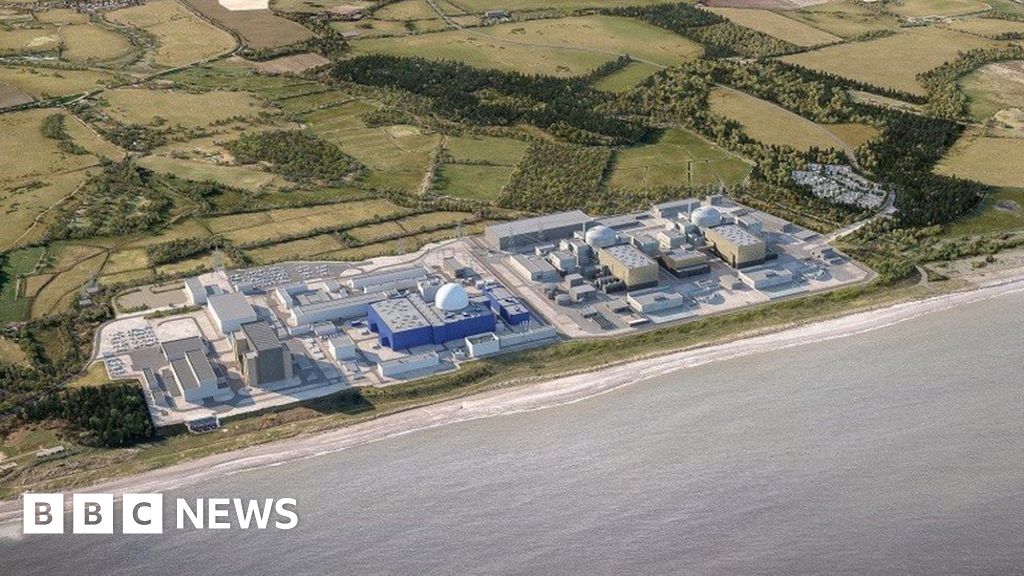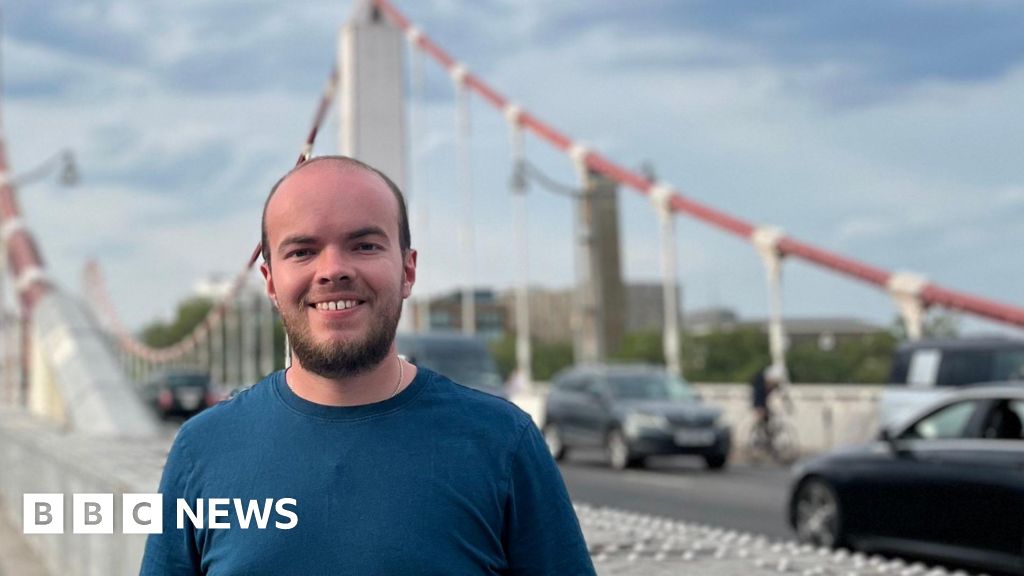ARTICLE AD BOX
 Image source, Getty Images
Image source, Getty Images
By Sam Gruet
Business reporter, BBC News
Growth in demand for new electric cars has flatlined, new figures suggest.
The number of electric cars sold reached record levels last year, but their share of the market did not increase, the Society of Motor Manufacturers and Traders (SMMT) said.
It means electric vehicles (EVs) failed to improve market share for the first time since 2018, raising concerns over green pledges.
The figures have sparked calls for tax cuts to boost uptake among buyers.
After years of disruption caused by the pandemic and a shortage of vital computer chips, the overall market for new cars is growing rapidly, with 1.9 million vehicles registered in 2023 - just under 18% more than in the previous 12 months.
But EVs accounted for 16.5% of new vehicles sold in the UK last year — down slightly from the 16.6% purchased in 2022.
Although the total number of electric vehicles sold rose to a record 315,000, helped by generous tax incentives for company car users, overall UK car sales increased by the same amount.
Last year was the first time electric vehicles failed to improve their market share since 2018, which has led to calls from the SMMT for the government to halve VAT on electric vehicles in order to boost demand from private buyers.
"When it comes to market share, we have fallen behind partly because there aren't the incentives for the private buyers that other countries have," SMMT boss Mike Hawes told the BBC.
"For the private buyer, there isn't any grants or any incentives other than for the next 12 months zero vehicle excise duty. We want to see that balanced up," he added.
EVs have lower running costs than petrol and diesel vehicles, but the upfront price is around 30-40% higher, according to the motoring organisation.
Currently those buying an EV in the UK through a business, a company car or salary sacrifice scheme can benefit from generous tax incentives. Grants for individuals were phased out by the government in 2022.
In September, Prime Minister Rishi Sunak confirmed a ban on new petrol and diesel car sales was being pushed back five years from 2030 to 2035.
The announcement was met with a mixed response from car-makers, many of which have begun investing heavily in electric vehicle production.
Despite the delay in the ban, firms will still be forced to meet strict quotas for selling electric cars from January, ensuring that more than one in five cars sold are zero emission models. If not, they will face heavy fines and the target will go up each year until 2030.
"Government has challenged the UK automotive sector with the world's boldest transition timeline. It must now help all drivers buy into this future, with consumer incentives that will make the UK the leading European market," SMMT boss Mike Hawes added.
'A bit tricky'
One criticism of electric cars is that batteries need to be charged. And for some motorists, that can be a headache - especially on long journeys.
EV owner Craig Scott says charging can occasionally be tricky
"You're going to stop every two or three hours on a long journey, you just have to think about it a little bit," explains Craig Scott, who talked to the BBC when he had stopped to charge his car.
"The car tells you where the charging points are, you can see if they're free before you stop. Stop off, have a bite to eat for half an hour and it's charged," he adds.
Craig does says charging can occasionally be a "bit tricky": "I imagine if you're going to Cornwall in the summer holidays, you're going to struggle to [find] charging points, but day-to-day I've not had any issue."
The number of public charging points is increasing - but critics say it is not fast enough, especially outside London and the South East of England.
In January 2023, the RAC motoring group said that government targets for installing high-powered chargers at motorway service stations were not being met.
Paul Comer - who heads up Roadchef's EV operaton - said over the last 12 months the motorway services had rolled out an additional 60 high-powered chargers.
"For us the biggest challenge is power," Mr Comer said. "In remote areas, the cable route to site is long and expensive," he said.
On top of that, he says that the legal and planning process of physically getting power to site, "all can take time".
Mike Hawes of the SMMT acknowledged charging infrastructure presents a challenge: "When we're trying to make this technological shift, one of the main issues everyone talks about is charging.
"Chargepoint numbers have increased but it needs to accelerate," he said.
The RAC also want to see a cut to the VAT applied to public chargers. It currently stands at 20%, but it is calling for a match to the domestic rate of 5%, making charging more affordable.
"We urge the government, in March's Budget, to reintroduce a form of the plug-in car grant aimed at the cheaper end of the new electric car market to stimulate demand," spokesperson Rod Dennis added.

 1 year ago
33
1 year ago
33








 English (US) ·
English (US) ·